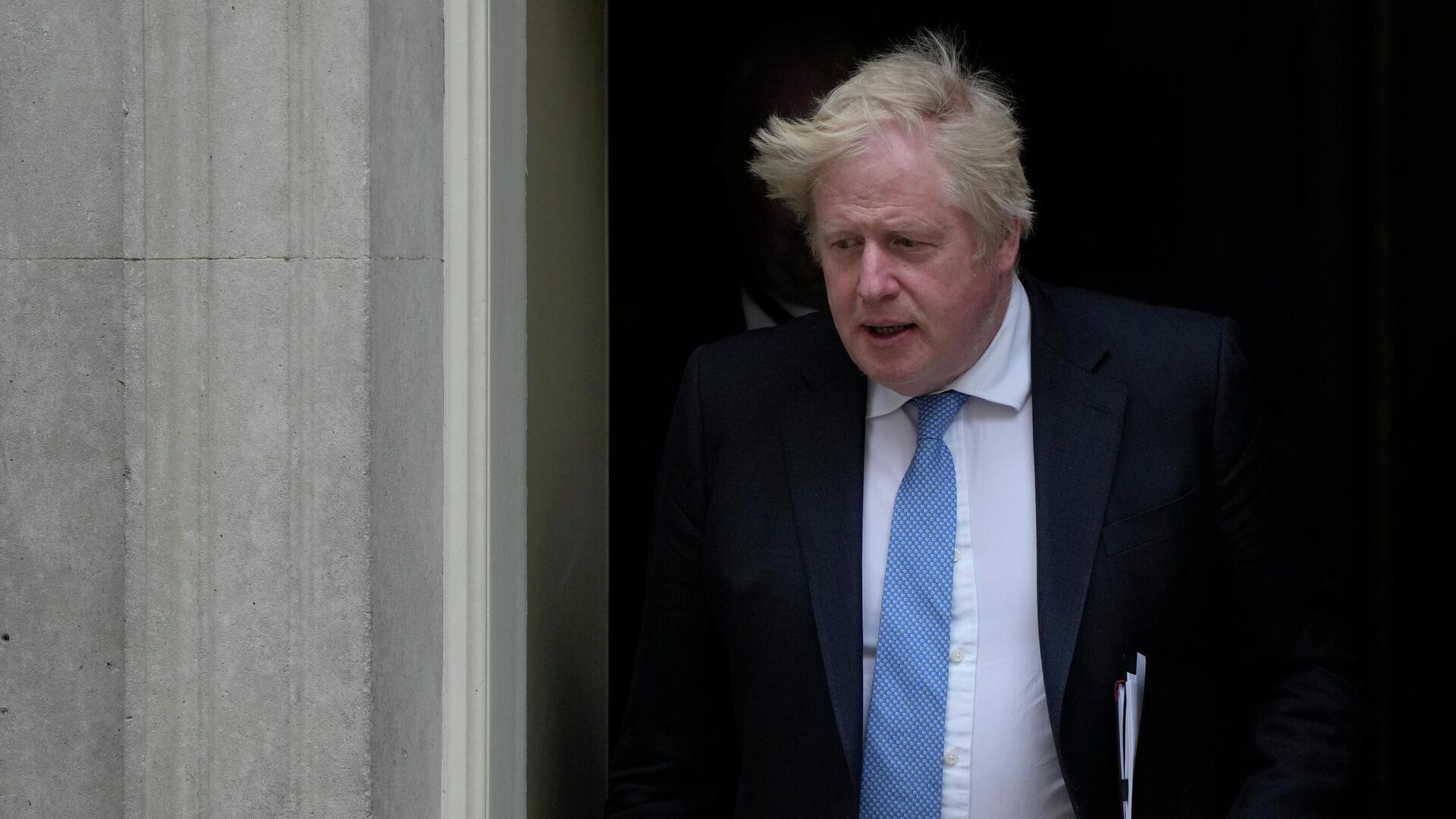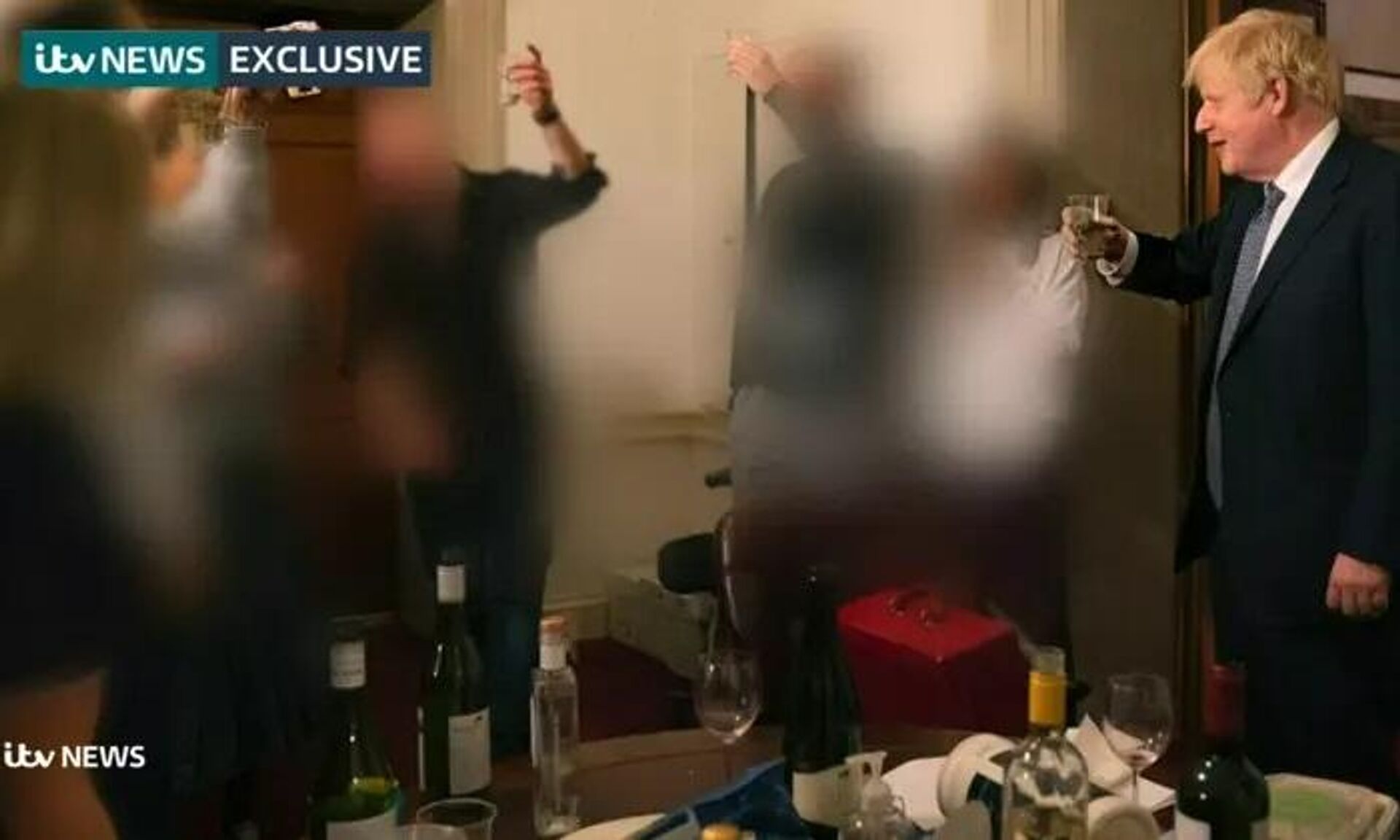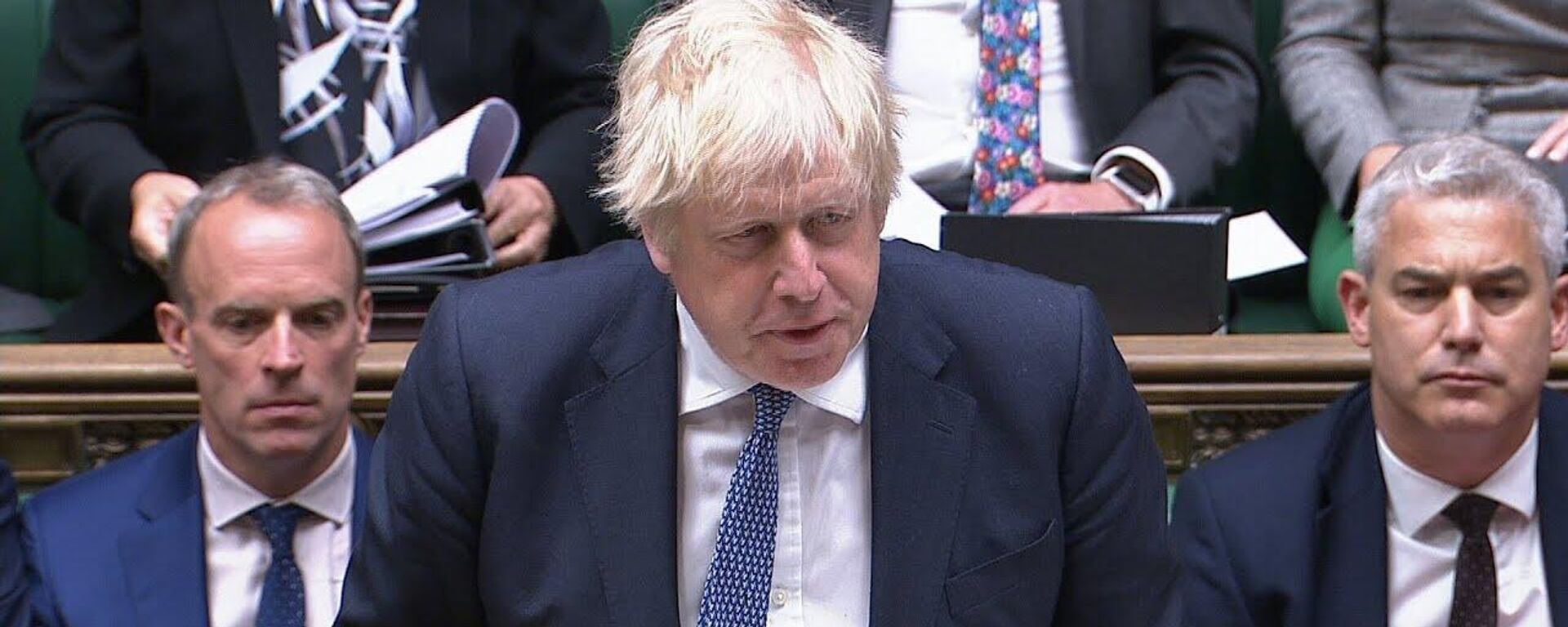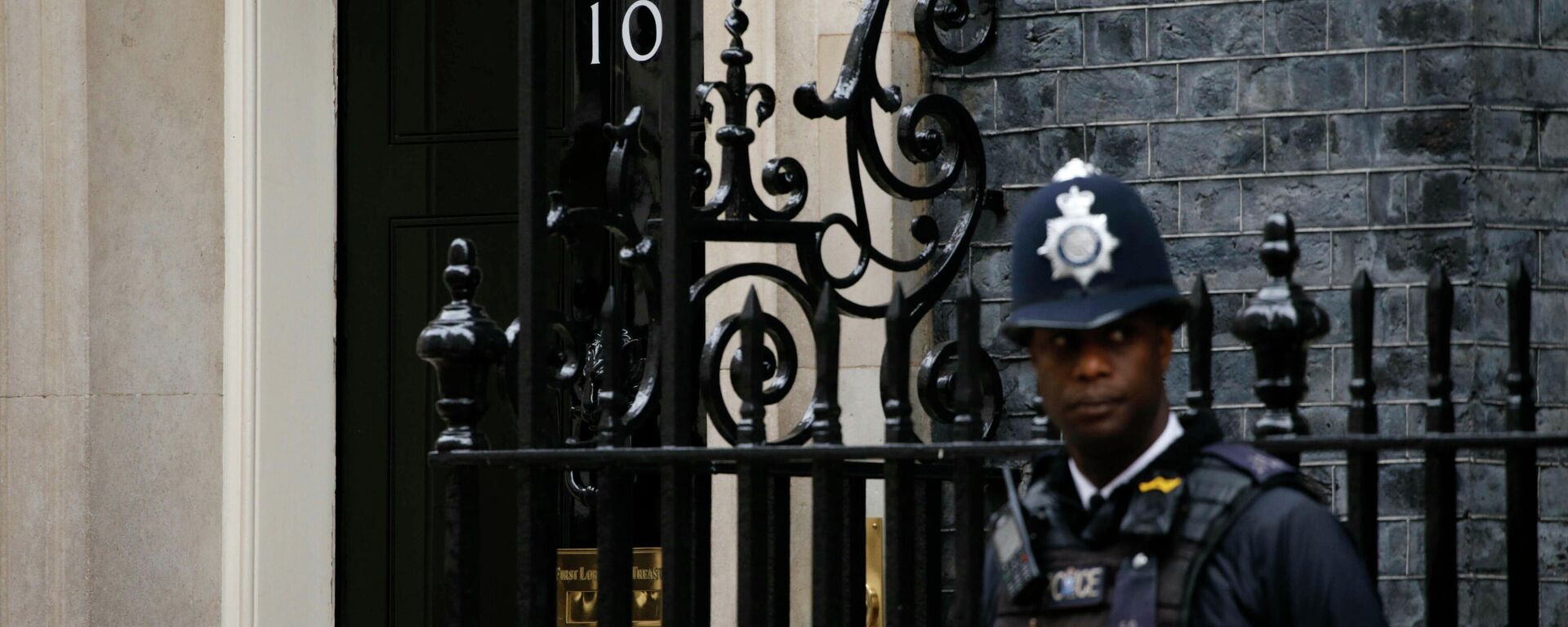https://sputnikglobe.com/20220528/drip-feed-of-no-confidence-letters-in-bojo-increases-as-mps-urge-pm-to-quit-over-partygate-1095840338.html
‘Drip-Feed’ of No Confidence Letters in BoJo Increases as MPs Urge PM to Quit Over ‘Partygate’
‘Drip-Feed’ of No Confidence Letters in BoJo Increases as MPs Urge PM to Quit Over ‘Partygate’
Sputnik International
After The Met concluded its investigation into so-called “partygate”, senior civil servant Sue Gray was able to produce her own report into the alcohol-fuelled... 28.05.2022, Sputnik International
2022-05-28T05:15+0000
2022-05-28T05:15+0000
2023-05-28T15:19+0000
boris johnson
partygate
uk conservative party
1922 committee
united kingdom (uk)
https://cdn1.img.sputnikglobe.com/img/07e6/04/15/1094948316_0:0:3072:1728_1920x0_80_0_0_8aca8773d8e3c74d2c4ed1da21f9919c.jpg
An increasing number of no-confidence letters are being sent over Boris Johnson's leadership since senior civil servant Sue Gray published her report into “partygate”, UK media outlets have reported.Former minister Sir Bob Neill has become the 12th Tory MP to submit such a letter to Sir Graham Brady, chairman of the backbench Conservative 1922 Committee.Neill, MP for Bromley and Chislehurst and chairman of Parliament's Justice Select Committee, said he did not find the UK Prime Minister’s explanations over lockdown-breaching parties “credible”.Johnson, along with his wife, Carrie, and Chancellor of the Exchequer Rishi Sunak received a solitary Fixed Penalty Notice (FPN) fine by Scotland Yard for having attended a surprise party for the Prime Minister’s 56th birthday on 19 June 2020 that was found to have breached coronavirus lockdown restrictions.After the Gray dossier was published, the PM told MPs in the Commons he was “humbled” by the findings, but pointed out that the police had not fined him for the “brief appearances” at what he believed were “work events” he needed to attend to “keep morale as high as possible”.Neill, however, wrote in The Daily Telegraph that Gray's report had "highlighted a pattern of wholly unacceptable behaviour" within 10 Downing Street, eroding trust in the government.The former lawyer wrote on Friday that he had listened to all the explanations Johnson had given in parliament and elsewhere, but did not find his assertions, “either that no rules were broken or that he was unaware of the breaches, to be credible.”Looking ahead, the Tory MP wrote that if the Conservatives hoped to win the next general election, they should draw lessons from how his own “safe” Tory seat of Bromley had lost seats in May's council elections because people "could not support us under Boris's leadership".Neill insisted he had no “personal animosity towards” the PM, but concluded: “I have come to the conclusion that he should now stand down."No 10’s ‘Toxic Culture’Shortly after this revelation, Alicia Kearns, the Conservative MP for Rutland and Melton who had been rumoured to be a key member of the “pork pie” plot against Boris Johnson in connection with the “partygate” row earlier this year, also claimed she did not have confidence in the PM, who had urged the public to “move on”.In the Commons, despite Gray’s report highlighting incidents of drunkenness, vomiting and "unacceptable" treatment of security and cleaning staff, Johnson told the public to “move on” from the “partygate” scandal. He also dodged questions pertaining to one potentially damning event that had evaded scrutiny - the so-called “Abba-themed party” in his own flat on 13 November 2020, with snacks, and a copious supply of alcohol.After Gray said she had “considered whether or not to conduct any further investigation into this event but concluded it was not appropriate or proportionate to do so,” some MPs voiced concerns over what they believed could amount to a “cover-up”.Doubling back to Johnson’s suggestions that the “partygate” issue was "done and dusted", Kearns added:The first member of the government to quit since Wednesday’s publication of the full Sue Gray report was Eastleigh MP Paul Holmes, who stood down as a ministerial aide in the Home Office.Holmes slammed “a toxic culture” that appeared to have “permeated No 10”. It was not clear whether he had written a letter of no-confidence.Another four MPs - Julian Sturdy, John Baron, David Simmonds and Stephen Hammond - have called for the PM’s resignation since the report’s publication.Ten MPs have said they have submitted letters, and a further 13 said Johnson should quit, but others may have called for a no-confidence vote in private, according to the i newspaper.The chairman of the backbench 1922 Committee, Sir Graham Brady, would be able to call a vote on Boris Johnson’s leadership once he received 54 no-confidence letters, with the PM then requiring the support of half his MPs - some 180 votes – to avoid being ousted.
https://sputnikglobe.com/20220525/boris-johnson-says-he-is-taking-full-responsibility-for-partygate-1095766871.html
https://sputnikglobe.com/20220524/partygate-insiders-bojo-fostered-crowded-parties-in-no-10-bubble-1095745336.html
united kingdom (uk)
Sputnik International
feedback@sputniknews.com
+74956456601
MIA „Rossiya Segodnya“
2022
News
en_EN
Sputnik International
feedback@sputniknews.com
+74956456601
MIA „Rossiya Segodnya“
Sputnik International
feedback@sputniknews.com
+74956456601
MIA „Rossiya Segodnya“
boris johnson, partygate, uk conservative party, 1922 committee, united kingdom (uk)
boris johnson, partygate, uk conservative party, 1922 committee, united kingdom (uk)
‘Drip-Feed’ of No Confidence Letters in BoJo Increases as MPs Urge PM to Quit Over ‘Partygate’
05:15 GMT 28.05.2022 (Updated: 15:19 GMT 28.05.2023) After The Met concluded its investigation into so-called “partygate”, senior civil servant Sue Gray was able to produce her own report into the alcohol-fuelled gatherings in Downing Street during the COVID-19 lockdown in 2020-21. The findings, published on 25 May, suggested Boris Johnson should take responsibility for “failures of leadership”.
An increasing number of no-confidence letters are being sent over Boris Johnson's leadership since senior civil servant Sue Gray published her
report into “partygate”, UK media outlets have reported.
Former minister Sir Bob Neill has become the 12th Tory MP to submit such a letter to Sir Graham Brady, chairman of the backbench Conservative 1922 Committee.
Neill, MP for Bromley and Chislehurst and chairman of Parliament's Justice Select Committee, said he did not find the UK Prime Minister’s
explanations over lockdown-breaching parties “credible”.
Johnson, along with his wife, Carrie, and Chancellor of the Exchequer Rishi Sunak received a solitary Fixed Penalty Notice (FPN) fine by Scotland Yard for having attended a surprise party for the Prime Minister’s 56th birthday on 19 June 2020 that was found to have breached coronavirus lockdown restrictions.
After the Gray dossier was published, the PM told MPs in the Commons he was “humbled” by
the findings, but pointed out that the police had not fined him for the “brief appearances” at what he believed were “work events” he needed to attend to “keep morale as high as possible”.
Neill, however, wrote in The Daily Telegraph that Gray's report had "highlighted a pattern of wholly unacceptable behaviour" within 10 Downing Street, eroding trust in the government.
“Trust is the most important commodity in politics, but these events have undermined trust in not just the office of the prime minister, but in the political process itself. To rebuild that trust and move on, a change in leadership is required,” insisted the Conservative MP.
The former lawyer wrote on Friday that he had listened to all the explanations Johnson had given in parliament and elsewhere, but did not find his assertions, “either that no rules were broken or that he was unaware of the breaches, to be credible.”
“I cannot accept that he was not aware of much of what was going on. That is why, with a heavy heart, I submitted a letter of no confidence to Sir Graham Brady on Wednesday afternoon," stated Neill.
Looking ahead, the Tory MP wrote that if the Conservatives hoped to win the next general election, they should draw lessons from how his own “safe” Tory seat of Bromley had lost seats in May's council elections because people "could not support us under Boris's leadership".
Neill insisted he had no “personal animosity towards” the PM, but concluded: “I have come to the conclusion that he should now stand down."
Shortly after this revelation, Alicia Kearns, the Conservative MP for Rutland and Melton who had been rumoured to be a key member of the
“pork pie” plot against Boris Johnson in connection with the “partygate” row earlier this year, also claimed she did not have confidence in the PM, who had urged the public to “move on”.
In the Commons, despite Gray’s report highlighting incidents of drunkenness, vomiting and "unacceptable" treatment of security and cleaning staff, Johnson told the public to “move on” from the “partygate” scandal. He also dodged questions pertaining to one potentially damning event that had evaded scrutiny - the so-called “Abba-themed party”
in his own flat on 13 November 2020, with snacks, and a copious supply of alcohol.
After Gray said she had “considered whether or not to conduct any further investigation into this event but concluded it was not appropriate or proportionate to do so,” some MPs voiced concerns over what they believed could amount to a “cover-up”.
Doubling back to Johnson’s suggestions that the “partygate” issue was "done and dusted", Kearns added:
“To say we just need to ‘move on’ is to treat with contempt and disregard the sacrifices of the people of Rutland and Melton, and our entire country.”
The first member of the government to quit since Wednesday’s publication of the full Sue Gray report was Eastleigh MP Paul Holmes, who stood down as a ministerial aide in the Home Office.
Holmes slammed “a toxic culture” that appeared to have “permeated No 10”. It was not clear whether he had written a letter of no-confidence.
Another four MPs - Julian Sturdy, John Baron, David Simmonds and Stephen Hammond - have called for the PM’s resignation since the report’s publication.
Ten MPs have said they have submitted letters, and a further 13 said Johnson should quit, but others may have called for a no-confidence vote in private, according to the i newspaper.
The chairman of the backbench 1922 Committee, Sir Graham Brady, would be able to call a vote on Boris Johnson’s leadership once he received 54 no-confidence letters, with the PM then requiring the support of half his MPs - some 180 votes – to avoid
being ousted.




